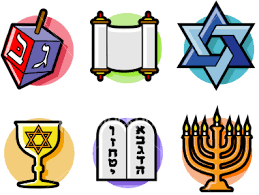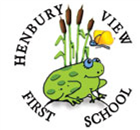Religious Education
Intent
At Henbury View First School, our aim is to develop confident and curious learners who are motivated and enthusiastic to explore world issues and develop an understanding of a range of faiths, views and beliefs beyond our local area. Pupils at Henbury View learn about and from religious beliefs. They appreciate and celebrate the similarities and differences between Christianity and other principal religions through gaining a deep knowledge and understanding of their teaching and practices. Our R.E. curriculum aims to give children the knowledge, understanding, critical thinking skills, open-minded and respectful attitude with which to investigate the world of religion and to prepare them to be able to make their own decisions in the future about what religion means to them. Children will be able to express ideas about the nature and impact religion has on themselves and society. During R.E. lessons, all children should feel confident to share their ideas make contributions within a supportive environment, during class discussions, feeling that their opinions and beliefs are valued and respected. Our curriculum is knowledge and vocabulary driven and allows children to develop 3 types of knowledge. First, ‘substantive’ knowledge, which is knowledge about various religious and non-religious traditions; second, ‘ways of knowing’, which is where pupils learn ‘how to know’ about religion and non-religion and third, ‘personal knowledge’, where pupils build an awareness of their own presuppositions and values about the religious and non-religious traditions they study. These are carefully planned throughout each unit of learning.

Implementation
At Henbury View First School, all year groups, including children in the EYFS, learn about Christianity and at least one other principal religion each year. Our curriculum fully encompasses the Dorset SACRE Agree Syllabus for Religious Education, and we support our R.E. teaching by using ‘Understanding Christianity’ and ‘Discovery R.E.’ as the basis for our planning thus ensuring we have a coherent curriculum which focuses on deep learning for all and clear progression. We follow an enquiry-based model and aim to teach ‘fewer things in greater depth’ to enable learners to have a deeper understanding. We have considered the theory of ‘Spaced Retrieval Practise’ and have recognised that our children need the opportunity to revisit previously taught objectives throughout the year to ensure they retained their understanding in the long-term and have therefore organised our curriculum to allow children to revisit knowledge in future year groups through reoccurring concepts.

The R.E. curriculum also accounts for SMSC and British Values. We aim for our curriculum to challenge pupils to be increasingly respectful and to celebrate diversity of different cultures, faiths and beliefs. Through their provision of Spiritual, Moral, Social and Cultural (SMSC) aspects, we enable our children to develop their self-knowledge, self-esteem and self-confidence. To develop our children’s understanding of British values, the R.E. classroom is a democratic classroom where all pupils have an equal right to be heard and democracy is modelled by the teacher and expected of every pupil. In R.E. pupils examine different codes for living and consider the value of the rule of law where all people are equal before the law. They consider questions about identity and belonging. The units allow children to reflect on the balance between individual liberty and the greater good and can challenge pupils to be increasingly respectful and to celebrate diversity of different cultures, faiths and beliefs.

Key Threads
At Henbury View, we have key threads that run through and across year groups. These will continually be revisited and explored across the academic journey of a child at Henbury. Each thread is underpinned by key vocabulary and knowledge that will be explicitly taught in RE. The key threads are:
|
Worship |
Symbols |
A good life |
Holy places and pilgrimage |
Key figures |
Life after death |
Celebrations and festivals |
Scripture |

Parents/carers have the right to withdraw their child from all or part of the RE curriculum. If you wish to discuss this, please speak with your child's class teacher.
